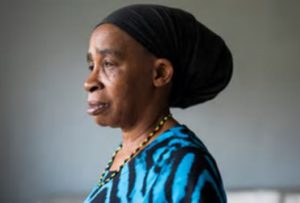Windrush scandal a lesson for all governments
 The resignation of Britain’s Home Secretary Amber Rudd draws an informative and salutary line under the UK’s so-called Windrush scandal.
The resignation of Britain’s Home Secretary Amber Rudd draws an informative and salutary line under the UK’s so-called Windrush scandal.
Ms Rudd quit amid a growing chorus of criticism over her handling of a damaging immigration crisis involving migrants from the so-called Windrush generation, a term derived from the name of a passenger liner that carried many people from the Caribbean to Britain over four decades.
The Windrush generation were people who came from the Caribbean between 1948 and 1971 to fill labour vacancies.
But recently, they have fallen foul of the Conservative Government’s heavy handed fixation with winding back migration.
Many, who came legally to the UK, are now elderly and have lost their jobs, homes, and bank accounts after being unable to demonstrate their legal status.
They have been denied access to Britain’s National Health Service, some have been detain and some have even been deported.
The scandal erupted after the Guardian published the story in late 2017 of grandmother Paulette Wilson who, 50 years after she entered the UK as a child, found herself in immigration detention and facing removal to Jamaica.
Another case was that of Renford McIntyre who was just a child when he left Jamaica to join his parents in Britain.
He spent the next 50 years in Britain working at various jobs and paying tax and assuming he was a full-fledged British citizen.
At the age of 60, the British Government declared him an illegal immigrant and he lost his job. He could no longer apply for benefits and became homeless.
More than 160,000 people have signed a petition for amnesty and compensation for people caught up in the affair and a letter, signed by 140 MPs, urged Prime Minister Theresa May to guarantee their status.
Ms Rudd quit after admitting she misled parliament by saying the Home Office does not have quotas for the removal of illegal immigrants.
Signally, she has been replaced by Sajid Javid, a son of Pakistani immigrants, and the first non-white politician to hold one of the most senior British cabinet positions.
In a debate in parliament on April 16, Ms Rudd apologised. She said: “Frankly, some of how they have been treated has been wrong – has been appalling – and I am sorry.”
The UK government has now promised to create a task force to resolve the issue.
This has come as Commonwealth leaders gathered in London for the 2018 Commonwealth Heads of Government Meeting.
But the crisis is rooted in – and marks the latest step in – an increasingly hostile political and legal landscape framed as being about controlling migration.
The issue has simmered in Britain since Ms May was Home Secretary and set out to create a “really hostile environment” for illegal immigrants, imposing tough new requirements in 2012 for people to prove their legal status.
But that was not easy for thousands of people like the Windrush generation who did not have British documents and whose parents came to Britain before the Caribbean colonies gained independence.
Now Ms May has found herself forced to apologise for the harsh treatment many Caribbean immigrants were experiencing and pledged to grant citizenship to all those caught up in what has been a bureaucratic bungle for the ages.
“We are genuinely sorry,” she said.
Laurie Nowell
AMES Australia Senior Journalist












